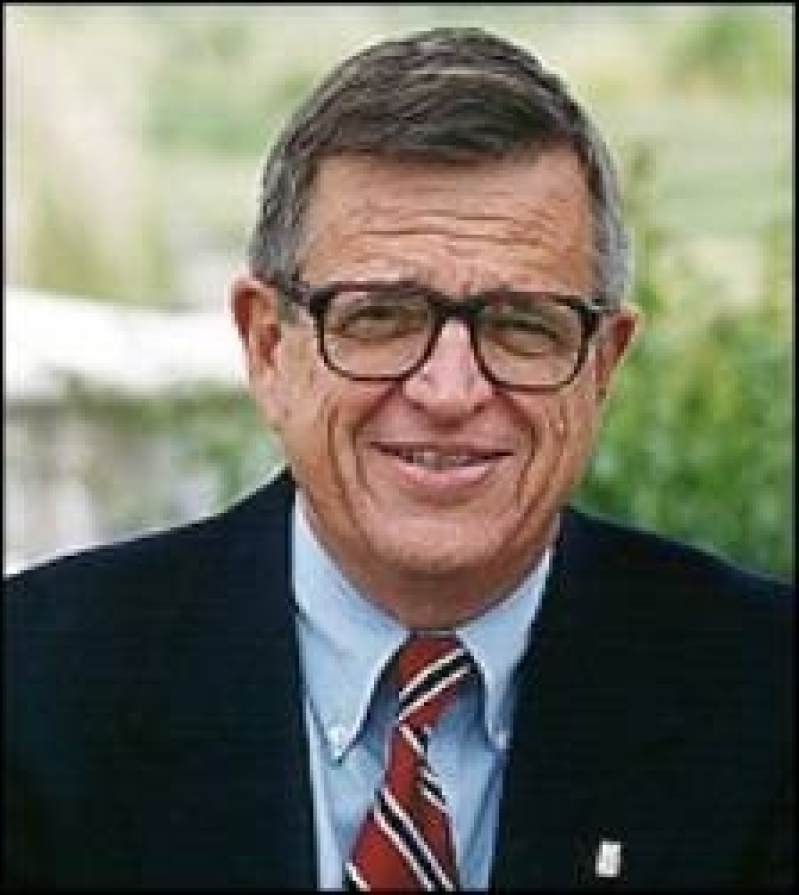
The fact that the hit movie WALL-E has a plot that even a child can follow doesn’t mean it’s juvenile. Released earlier this year, the Pixar film follows the story of a little robot named WALL-E. While the rest of Earth’s inhabitants have embarked on a 700-year cruise-like vacation aboard a space station, this little robot is left behind to clean up the planet.
As WALL-E sifts through the trash, he begins to learn what it’s like to be human. A Rubik’s Cube says something about the human capacity for logic and play; an old VHS tape of Hello Dolly teaches him about the human capacity for creativity. One hand-holding scene, which WALL-E plays over and over, teaches him about love.
The little robot continues, day in and day out, to do his task of cleaning up the earth, until a “female” robot, aptly named EVE, comes along. EVE, or Extra-terrestrial Vegetation Evaluator, is on a mission to see if the earth can once again sustain life. If so, humans can one day return to it.
Ironically, while WALL-E is trying to learn about what is to be human, humans adrift in the cosmic space station have grown robot-like, tethered to machines and out of touch with each other and their own creative impulses.
Many critics saw the film as an environmental movie. But while WALL-E has a lot to say about the stewardship of the creation, it is ultimately about much more. Filmmaker Andrew Stanton, an outspoken Christian, recently explained to World Magazine that what really interested him in the story line was “the idea of the most human thing in the universe being a machine, because it has more interest in finding out what the point of living is than actual people.”
“The greatest commandment Christ gives us is to love,” Stanton says, “but that's not always our priority. So I came up with this premise that . . . irrational love defeats the world's programming.” That’s why Stanton created WALL-E and EVE to work literally against their own robotic programming to demonstrate love, first for each other, and then for humanity.
In contrast to robots learning to love, Stanton wanted to show how humans had become machinelike. Our routines and habits, he argues, have programmed us “to the point that we're not really making connections to the people next to us. We're not engaging in relationships, which are the point of living—relationship with God and relationship with other people.”
I couldn’t agree more.
Another thing you’ll notice about the film is that all the humans are enormously obese. This was the result of Stanton’s imaginative logic of what would happen to humans as the result of living long term in zero-gravity conditions. But, Stanton told Christianity Today, it’s also what humans would look like when we become “big babies with no reason to grow up.” Stanton explains, “I was going with the logic of what would happen if you were in a perpetual vacation with no real purpose in life.”
Through the stark depiction of such perpetual laziness, viewers rediscover something that all of us can easily lose sight of: the value and beauty of meaningful work.
Sacrifice, love, logic, playfulness, creativity, connection, work—take some time this month and let a little robot remind you what it means to be human, created in God’s image.
_______________________________________________________
From BreakPoint®, December 18, 2008, Copyright 2008, Prison Fellowship Ministries. Reprinted with the permission of Prison Fellowship Ministries. All rights reserved. May not be reproduced or distributed without the express written permission of Prison Fellowship Ministries. “BreakPoint®” and “Prison Fellowship Ministries®” are registered trademarks of Prison Fellowship







